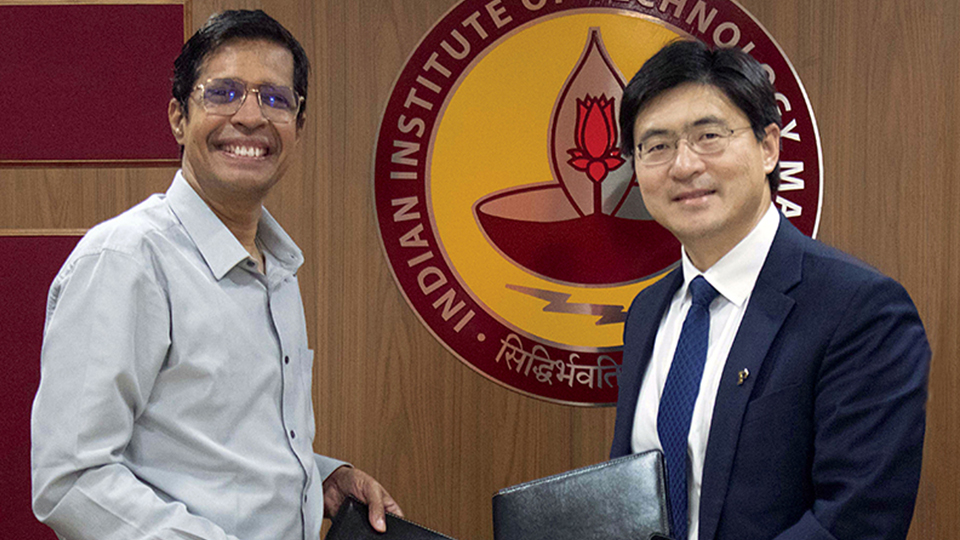Purdue forges partnership with tech institute in India
Subscriber Benefit
As a subscriber you can listen to articles at work, in the car, or while you work out. Subscribe Now
Purdue University is partnering with a leading research university in India to launch a dual-degree master’s program in semiconductors. The partnership with the Indian Institute of Technology Madras intends to ramp up skilled talent for the next generation of the microchip workforce.
Officials from both institutions recently signed a letter of intent agreeing to the formal collaboration. The schools say the partnership is a natural extension as Purdue is already home to over 2,700 students from India.
“We are thrilled to be partnering with IIT Madras on these dual-degree programs to rapidly contribute to the workforce needs of the large semiconductor industry in both the U.S. and India,” said Mung Chiang, Purdue’s president-elect and executive vice president for strategic initiatives. “We recently launched the first comprehensive Semiconductor Degrees Program (SDP) with the goal of becoming the top source of skilled semiconductor talent for the U.S.”
Purdue says the program will focus on an innovative, cooperatively developed curriculum to meet the industry’s growing needs.
In addition to work in semiconductor electronics, the partners would also collaboration supply-chain management, chip design, packaging, and system architecture.
“IIT Madras has world-class faculty in the area of semiconductors, from electronic devices to circuits and systems,” said Nagendra Krishnapura, professor and head of the IIT Madras Department of Electrical Engineering. “This new dual-degree program in semiconductors will give students a solid foundation in these areas, while also giving them the freedom and flexibility to specialize in their chosen area of interest.”
The schools say undergraduate students with strong academic credentials and deep interest in the field would be candidates for the future master’s program.
IIT Madras was established in 1959 by the Government of India as an “Institute of National Importance” and was charged with advancing research and education in science and technology fields.
